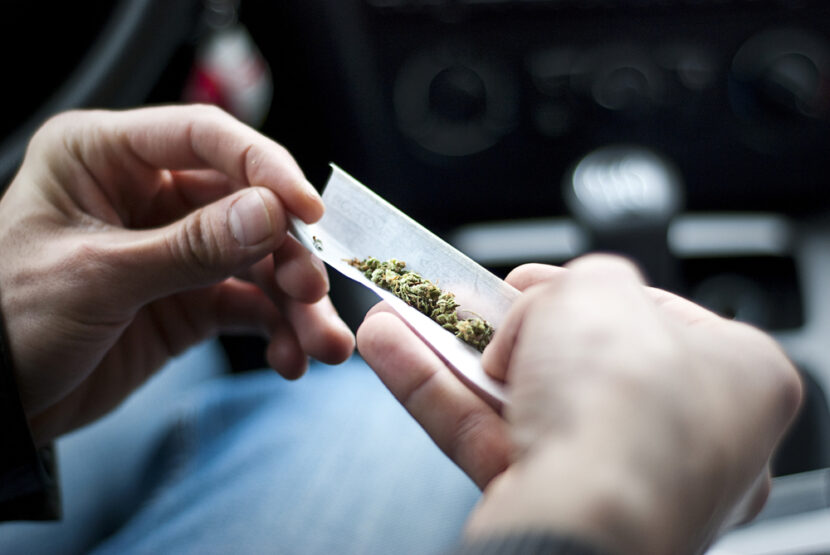KINGSTON, Jamaica – Marijuana has been pervasive but illegal in Jamaica for decades, consumed as a medicinal herb, puffed as a sacrament by Rastafarians and sung about in the island’s famed reggae music.
After many years of dialogue about the culturally entrenched drug, and emboldened by changes to drug laws in U.S. states, Jamaica’s Parliament on Tuesday night gave final legislative approval to an act decriminalizing small amounts of pot and establishing a licensing agency to regulate a lawful medical marijuana industry.
The historic amendments pave the way for a “cannabis licensing authority” to be established to deal with regulating the cultivation and distribution of marijuana for medical and scientific purposes. Officials say the island’s governor-general will formally sign it into law in coming days.
In addition, adherents of the homegrown Rastafari spiritual movement can now freely use marijuana for sacramental purposes for the first time on the tropical island where the faith was founded in the 1930s.
The act makes possession of up to 2 ounces of marijuana a petty offence that could result in a ticket but not in a criminal record. Cultivation of five or fewer plants on any premises will be permitted. And tourists who are prescribed medical marijuana abroad will soon be able to apply for permits authorizing them to legally buy small amounts of Jamaican weed, or “ganja” as it is known locally.
Peter Bunting, the island’s national security minister, said Jamaica has no plans to soften its stance on transnational drug trafficking or cultivation of illegal plots. Jamaica has long been considered the Caribbean’s largest supplier of pot to the U.S. and regional islands.
“The passage of this legislation does not create a free-for-all in the growing, transporting, dealing or exporting of ganja. The security forces will continue to rigorously enforce Jamaican law consistent with our international treaty obligations,” Bunting said in Parliament.
William Brownfield, the U.S. assistant secretary for counter-narcotics affairs, told The Associated Press days before the vote that “Jamaican law is of course Jamaica’s own business, and Jamaica’s sovereign decision.” But he noted that the trafficking of marijuana into the U.S. remains against the law.
“We expect that Jamaica and all states party to the U.N. Drug Conventions will uphold their obligations, including a firm commitment to combating and dismantling criminal organizations involved in drug trafficking,” he told AP in an email.
Debate has long raged in Jamaica over relaxing laws prohibiting ganja, but previous calls to decriminalize small amounts fizzled out because officials feared they would bring sanctions from Washington.
Jamaican officials now hope that the island can become a player in the nascent medical marijuana industry, health tourism and the development of innovative pot-derived items. Local scientists already have a history of creating marijuana-derived products, such as “Canasol,” which helps relieve pressure in the eyes of glaucoma patients.
Commerce Minister Anthony Hylton said a regulated cannabis industry holds “great potential” for Jamaica, where marijuana has long been grown illegally on mountainsides and marshes.
On Wednesday, Colorado-based United Cannabis Corp. said it has launched a partnership with Jamaican agencies to launch a marijuana research and development facility on the island that they hope will lead to patents and medical cannabis products.
The move by Jamaican lawmakers adds to an international trend of easing restrictions on marijuana for medical or personal use. More than 20 U.S. states allow some form of medical marijuana and last year Colorado and Washington legalized personal use. On Tuesday, Alaska became the third U.S. state to legalize the recreational use of marijuana for adults.
In the Americas, Uruguay last year became the first nation to create a legal marijuana market. In Argentina, personal possession of marijuana was decriminalized under a 2009 Supreme Court ruling that jail time for small amounts of drugs violates the country’s constitution. A law in Chile permits use of medical marijuana.
Details of Jamaica’s licensing authority and its hoped-for medical marijuana sector need to be refined in coming months. But Jamaican cannabis crusaders applauded the amendments.
“This is a big step in the right direction, but there’s still a lot of work to do,” said Delano Seiveright, director of the Cannabis Commercial and Medicinal Taskforce.
